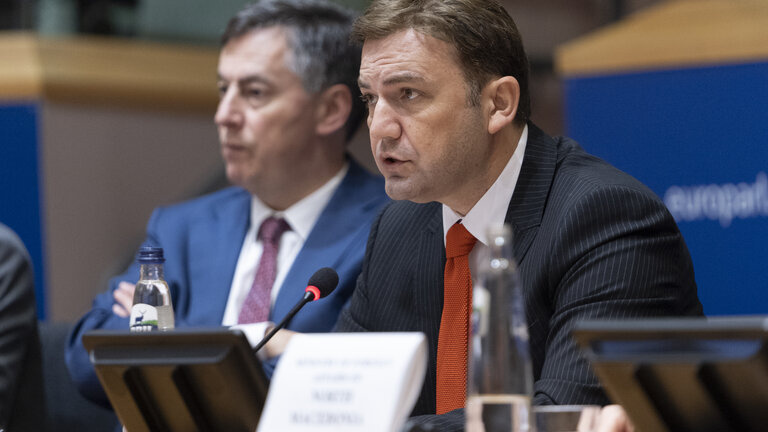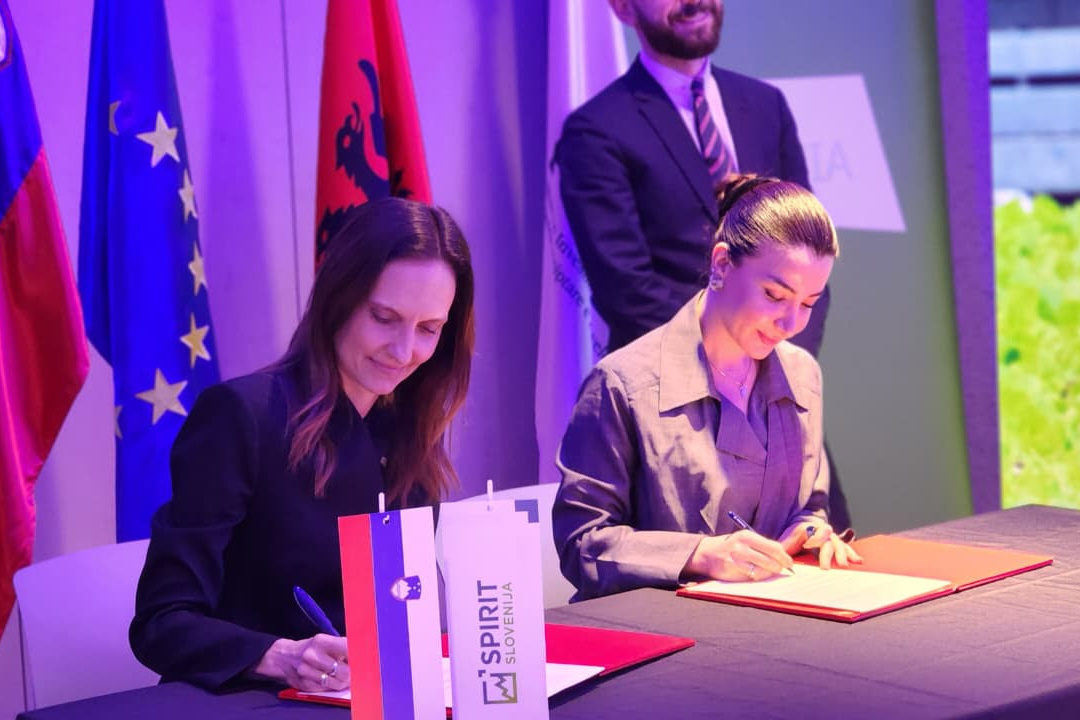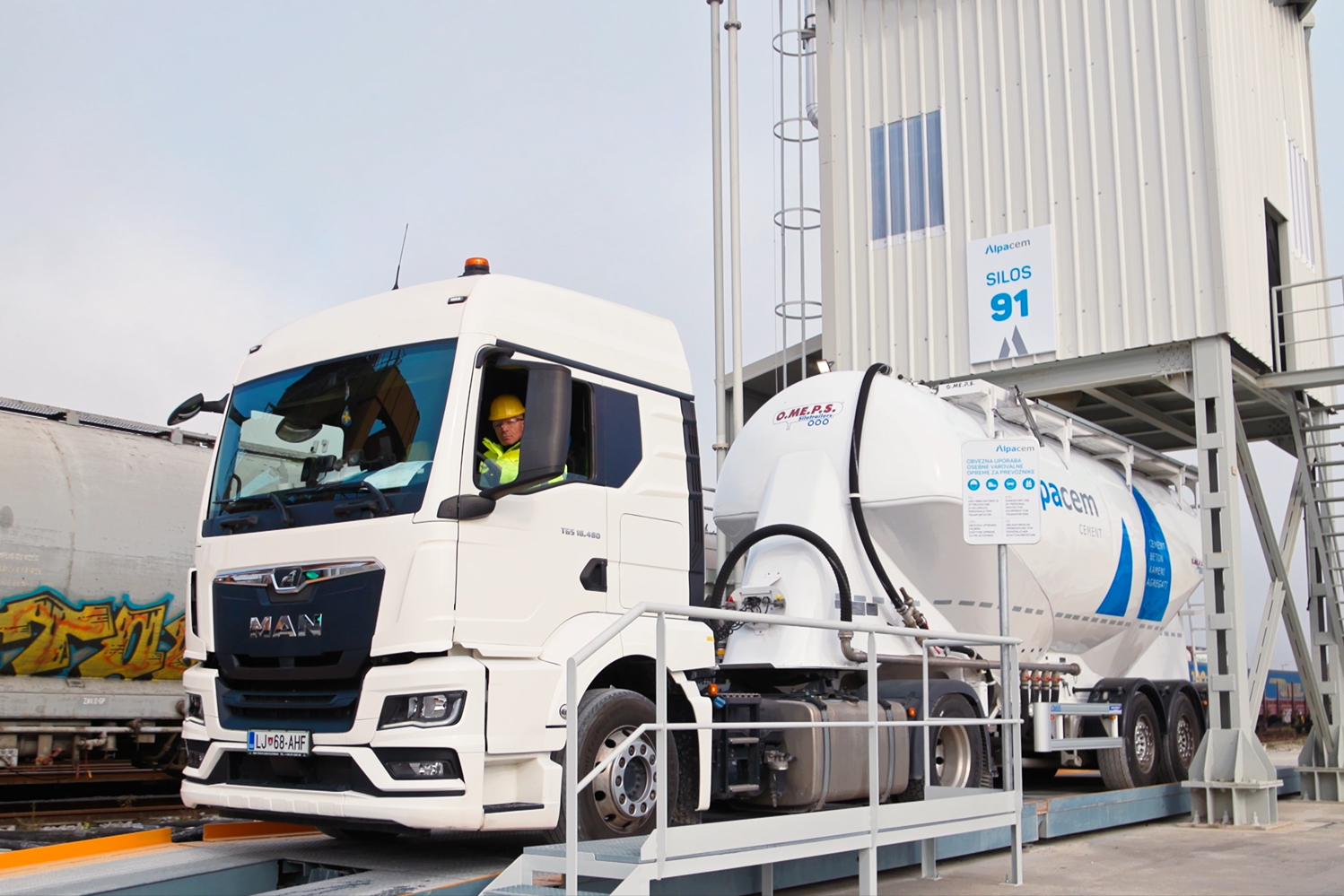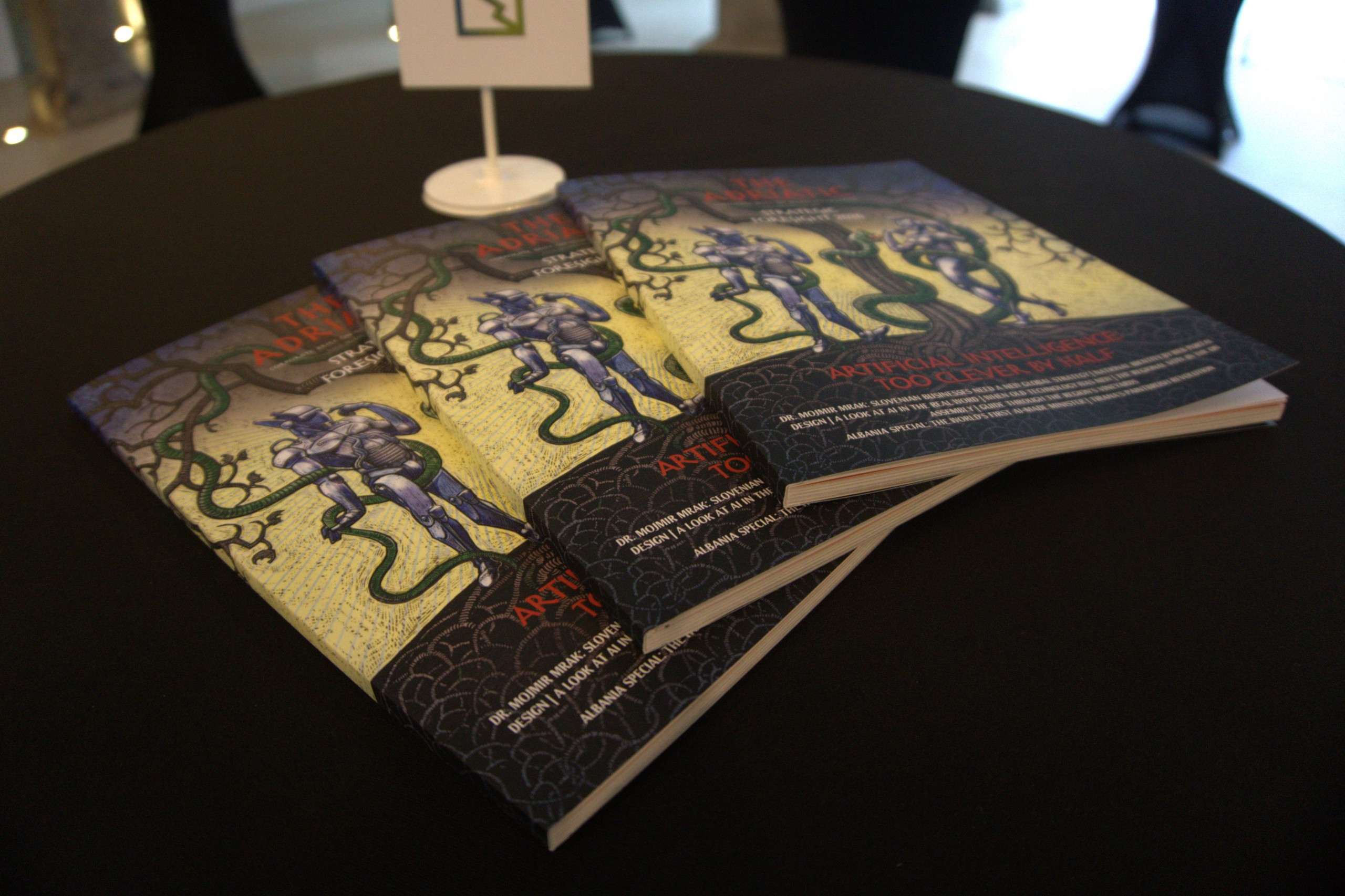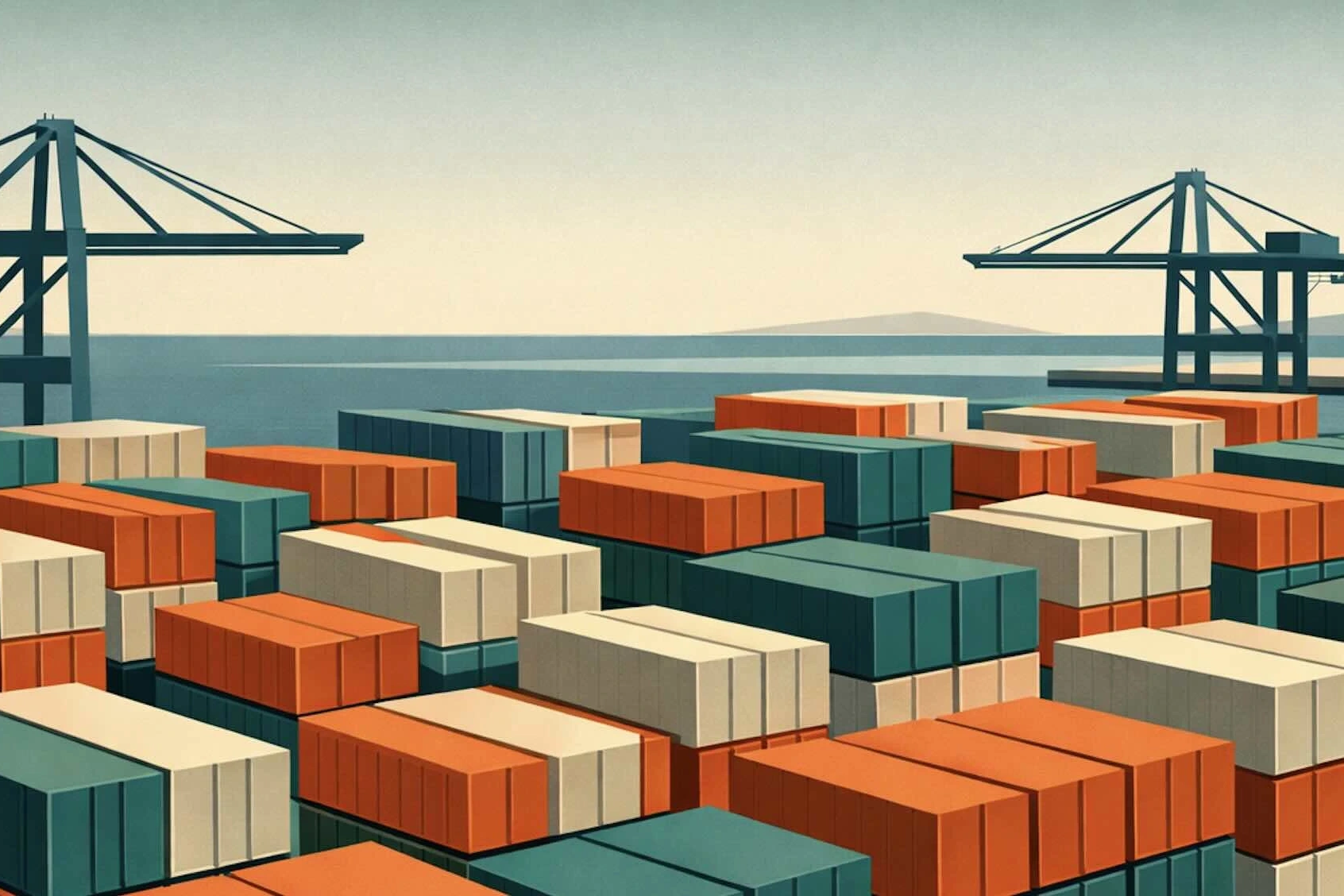Open Hearts and Closed Doors
Andraž Tavčar
JOURNALIST AT THE ADRIATIC
A man with a concerned expression, wearing a sharp orange tie, speaks earnestly into the microphone. He is framed by the solemnity of a conference room ― his eyes bearing a weighty resolve, surveying the unseen, while those around him blur into the periphery of his focus.
If there was a scene that could capture North Macedonia’s travails with EU enlargement, it would be this. Agitated yet determined, the country has been caught in a state of perpetual limbo since it first began its rapproachment with the bloc at the turn of the century.
While President Michel has pledged that the EU will be prepared to take in new members by 2030, the future for the country’s EU aspirations appear more unpredictable than ever.
The Greek Oxi
Beginning in the late 90s, North Macedonia was the first of its former Yugoslav brothers to shake hands with the West, sealing a NATO membership action plan in ’99 and an EU stabilisation and association agreement in 2001.
By 2005, buoyed by its newfound status as a candidate country, North Macedonia appeared on the cusp of securing NATO membership. However, its ambitions hit a snag. At the 2008 NATO Summit in Bucharest, Greece exercised its veto power, citing concerns that Macedonia’s erstwhile name harbored latent territorial claims over its own northern province, also named Macedonia.
Then, when the European Commission gave the thumbs up for membership talks in 2009, the old Greek name game reared its head again.
In the ensuing decade, the political stage was dominated by a heady mix of politicking and populist fire, where the stubbornness of Nikola Gruevski’s nationalism in the country clashed head-on with a revolving door of equally unyielding Greek governments.
Despite the United Nations playing mediator, progress was sluggish, with few tangible results achieved over the years.
Turning point
The political landscape in Greece underwent a significant change with the rise of Alexis Tsipras, while North Macedonia experienced an equally notable political upheaval in 2017 that paved the way for Prime Minister Zoran Zaev. A year later, these two leaders would come together at Lake Prespa.
“The then socialist governments, with PM Zaev and Syriza’s Tsipras at the helm, managed to reach something of a diplomatic coup,” observes Matjaž Nemec, a Slovenian S&D MEP and member of the European Parliament’s Committee for Foreign Affairs. He points out that the Prespa Agreement – as it’s been dubbed – was pivotal for the Western Balkans. The landmark deal served as an example in untangling the web of issues that had long ensnared countries in the region, addressing concerns on both a bilateral and multilateral basis.
“Crucially, after the agreement was signed, Greece has consistently refrained from readdressing or contesting matters concerning North Macedonia’s name or its path to accession in any EU institutional fora.”
New hurdle
Post-2018, a new obstacle emerged due to disagreements over history with another EU member state, Bulgaria. Its insistence on addressing perceived “anti-Bulgarian ideology” in North Macedonia threatened to impede the latter’s EU accession process.
“As the Bulgarian issue gained more tangible prominence in 2019, and particularly in 2021, it brought into question the very agreement itself, rendering Bulgaria’s actions akin to a double-edged sword. This strategy effectively escalated a domestic political issue to a matter of international, or more precisely, European importance, elevating it to a dispute between two nations.”
Although some Bulgarians had previously expressed these concerns, their assertions were relatively minimal, and, for Nemec, it’s “incomprehensible” that Bulgaria hadn’t raised these issues at least concurrently when Greece had.
It nearly seemed like a replay of the Greek saga, but the EU had been roused by an outbreak of a war on its periphery. With Russia’s invasion of Ukraine, Western Europe’s appetite for enlargement revived as it sought to secure its values and its borders.
Incidentally, it would be the French under president Emmanuel Macron, that offered the Macedonians a way out of their stalemate. The so-called ‘French Proposal’ introduced a framework that mandated the country acknowledge the Bulgarian community within its own constitution, and the Sobranie, North Macedonia’s parliament, only tentatively voted it through, considering the minuscule census count of some three thousand citizens identifying as Bulgarian.
Charting the course
As a shadow rapporteur on the 2022 Commission report on North Macedonia, Nemec played a significant role in overseeing and contributing to the European Parliament’s evaluation of the country’s progress towards EU membership.
“We were faced with the fact that a report on a candidate state was not adopted, primarily because it had been overly influenced by a bilateral or Bulgarian agenda.”
He explained that as Skopje was trying to wrangle the necessary number of votes needed to change the country’s constitution, negotiations between the different political groups for a resolution on the report were underway in the European Parliament. The S&D, Greens and the Left political groups voiced their disagreement over the proposed text and the rapporteur, coming from the ranks of Renew, was subsequently forced to withdraw the progress report.
Nemec explained their strategy aimed to moderate the Bulgarian influence on the resolution. “We wanted to slightly temper or limit the process, believing that adopting a resolution aligned with the Bulgarian stance might have implications on the North Macedonian negotiations regarding the essential constitutional amendment.”
He candidly acknowledged the limitations of steering such an affair, admitting that “no one can control the entire process, not even the two or three biggest political groups.”
Despite the shared goal among North Macedonia’s political factions for EU membership, Nemec expressed concern over the diminishing allure of the European story ― not just in North Macedonia but across the EU, as well. He cautioned that should the EU fail to promptly respond to the aspirations of the Western Balkans, they could drift towards other regional or global influences. “These changes might result in alliances that are either misaligned or even anti-European.”
North Macedonia’s European path has been marred by tense relations with its neighbours and an EU that seemed stuck on the precipice at the end of history, overconfident of its economic relationship with Russia and the carrot it perpetually dangled over the Western Balkan states. The promise of membership always there but never quite in reach.
With all the country has sacrificed, North Macedonia stands out among the now enlarged pool of candidates. But the path ahead is muddied by a crucial election that could sidetrack the EU’s reemergent vim. EU-wide elections in June risk diverting focus to more inward-looking concerns as the far-right parties lead in the polls. Inflation, the energy crunch, escalating living costs, security crises, migration, healthcare, and climate change are poised to amplify public apprehensions, creating an ideal breeding ground for populist rhetoric.
The common advice to candidate countries by the EU is to “do your homework.” But if the school is in disarray, what’s the use?
THE ADRIATIC
This article was originally published in The Adriatic: Strategic Foresight 2024
If you want a copy, please contact us at info@isr.si.

